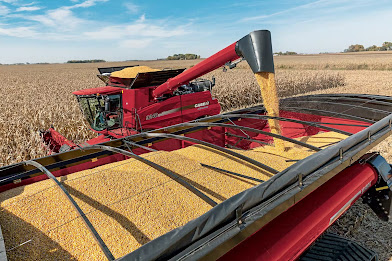The Economics of Food: How Feeding and Fueling the Planet Affects Food Prices by Patrick Westhoff
Published in 2010 by FT Press.
I picked this book up because I am a resident of Indiana and biofuels are a controversial topic. Some hail biofuels as a boon for local farmers, a green energy source, a creator of new jobs, and a step towards energy independence. Others decry the whole project as stupidly burning our food in our gas tanks and a massive waste of money - cutting off our nose to spite our faces.
What's the good news?
This is truly a comprehensive introduction to topic of biofuels vs. affordable food. It is chock full of graphs, well-documented and is written in clear, easy to understand language.
What's the bad news?
It reads with all of the excitement of an introductory level college economics text, which is fitting since the publisher of this book is FT Press, an imprint of educational textbook giant Pearson.
The other real problem is that if you are looking for an answer to the biofuel dilemma, it is not here. What you learn is that the relationship between the food prices and biofuels is amazingly complicated. Government supports, tariffs, rising incomes in China and India, speculation, the value of the dollar and the weather all have an effect food prices and even if someone were able to program a computer model with all of these variables included they still wouldn't be able to truly demonstrate to what extent the diversion of grains to biofuels affects the price of food.
So, the book familiarizes the reader with the issues, but doesn't really supply any answers nor much excitement.
I rate this book 3 stars out of 5 and it can be found here: The Economics of Food: How Feeding and Fueling the Planet Affects Food Prices.
Reviewed on April 26, 2010.
I picked this book up because I am a resident of Indiana and biofuels are a controversial topic. Some hail biofuels as a boon for local farmers, a green energy source, a creator of new jobs, and a step towards energy independence. Others decry the whole project as stupidly burning our food in our gas tanks and a massive waste of money - cutting off our nose to spite our faces.
What's the good news?
This is truly a comprehensive introduction to topic of biofuels vs. affordable food. It is chock full of graphs, well-documented and is written in clear, easy to understand language.
What's the bad news?
It reads with all of the excitement of an introductory level college economics text, which is fitting since the publisher of this book is FT Press, an imprint of educational textbook giant Pearson.
The other real problem is that if you are looking for an answer to the biofuel dilemma, it is not here. What you learn is that the relationship between the food prices and biofuels is amazingly complicated. Government supports, tariffs, rising incomes in China and India, speculation, the value of the dollar and the weather all have an effect food prices and even if someone were able to program a computer model with all of these variables included they still wouldn't be able to truly demonstrate to what extent the diversion of grains to biofuels affects the price of food.
So, the book familiarizes the reader with the issues, but doesn't really supply any answers nor much excitement.
I rate this book 3 stars out of 5 and it can be found here: The Economics of Food: How Feeding and Fueling the Planet Affects Food Prices.
Reviewed on April 26, 2010.












Comments
Post a Comment